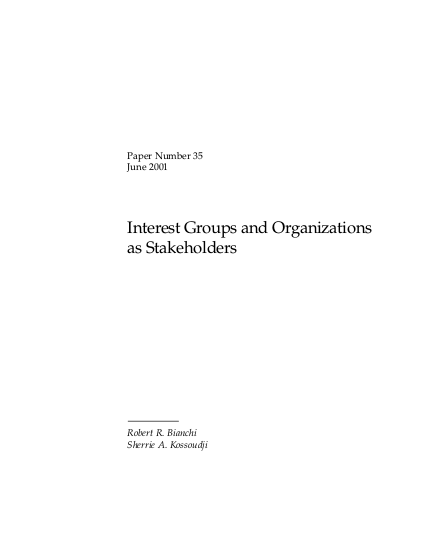
Any development intervention that seeks to change the rules of the game will produce winners and losers. Existing stakeholders with entrenched interests in the previous system will have major interests in determining how attempts at institutional change will affect their power and interests. Thus, the task manager’s ability to understand and engage or neutralize stakeholder interests during project design and implementation is essential for the success of interventions posited on changing conditions on the ground. Traditionally, World Bank staff have used stakeholder analysis at the level of the individuals affected by interventions. However, it is the analysis of groups and organizations— both inside and outside government—as stakeholders to processes and outcomes that is critical to the success of any policy reform. It is through stakeholders within government that any reform will be mediated. Groups of stakeholders, both within and outside government, mediate access to resources and power and produce forms of stratification and obstacles to empowerment.
Links
Resource collections
- UN Habitat - Urban Response Collection
- Urban Response - Urban Crisis Preparedness and Risk Reduction
- Urban Response Collection - Community Engagement and Social Cohesion
- Urban Response Collection - Economic Recovery
- Urban Response Collection - Environment and Climate Change
- Urban Response Collection - Housing, Land and Property
- Urban Response Collection - Urban Crisis Response, Recovery and Reconstruction
- Urban Response Collection - Urban Resilience
